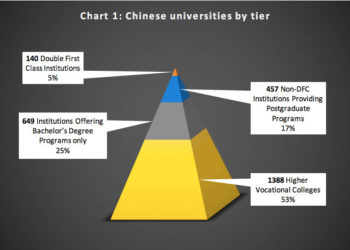This summer, a bit of news slipped quietly through my news filters — the Modern Language Association (MLA) struck an exclusive database indexing and hosting arrangement with EBSCO. Subject indexes have struggled to find a good balance with library discovery services for several years now. While I am not privy to the particulars of this agreement, I was alarmed to learn that the terms prevent MLA products, such as the well-known bibliography, will be limited to EBSCO’s discovery service (EDS).
I am sympathetic to the MLA’s motivations for such an exclusive arrangement, however, the impacts are clear and will ultimately hurt users, as pulling out of the other discovery services will undoubtedly limit visibility of MLA’s products within the library setting. In the spirit of community, I acknowledge that all players in the industry have different agendas, and we all need to balance the books. But, information providers are at risk unless we find ways to collaborate and cooperate, rather than retreat to competitive measures that ultimately diminish content discovery. I advocate for solutions that unite content and service providers with libraries around a mission rooted in efficient and effective scholarly discovery.

Simply put, exclusive indexing agreements create dams, blocking the flow of scholarly information and putting research progress at risk. Just as the data shows growing reliance on both library discovery services and abstracting & indexing (A&I) databases, it’s a shame to see this sort of barrier to scholarly workflows. Creating dead-ends and silos in this way undermines research and shores up illegal pathways to content, signaling ongoing threats to a truly comprehensive discovery experience for researchers within the academic library.
These limitations also put libraries in the untenable position of choosing to expose some resources, but not all; to promote usage of those collections prioritized by search providers, rather than the libraries paying for both their collections and the associated discovery layer. I find it disappointing to hear of library cancellations due to a conscious, strategic lack of coverage by discovery services. After nearly 10 years of advocacy for fairness by the Open Discovery Initiative, we are still struggling to strike the right balances between publisher, library, and user needs. While the discovery marketplace is both diverse and in a state of flux, I strongly believe both content and search providers should get out of the way and allow libraries to make local decisions regarding the discovery and access that best fits their needs.
Among the formal responses to this recent MLA / EBSCO announcement, such as those from ICOLC, ELUNA/IGeLU, Gale, and ProQuest, I reached out to a few librarians on the front lines of serving students and faculty with discovery and access solutions to get their impressions. I was particularly curious how non-EDS libraries were responding, and what obstacles or opportunities they saw in this exclusive deal. Please note: The responses below reflect these three individuals’ opinions and do not constitute any official or formal response from their organizations.
Response by Amira Aaron, Associate Dean for Scholarly Resources, Northeastern University Library
As the Associate Dean of the Northeastern University Library for Scholarly Resources, I have responsibility for providing streamlined access to the best possible content and metadata for our students and faculty. I also have administrative oversight of our Primo discovery system. The recent announcement about the exclusive deal involving the MLA Bibliography, both for content and metadata, is a serious and damaging development and threatens the open and effective access of scholars and researchers to content in their fields. Exclusivity does away with choice for libraries and their users. It is a dangerous trend, especially when it restricts the open sharing of metadata. This trend has become especially disturbing as it involves those content providers, such as EBSCO, who also offer their own discovery systems. I was appalled to hear one vice-president talk about “winning the discovery system war” using precisely these kind of tactics. Librarians need to renounce these exclusive arrangements loudly and make their researchers and society members aware of them as well. At Northeastern, we did compose a letter about the MLA Bibliography decision and sent it to appropriate faculty.
Libraries are aware that discovery systems are not perfect and certainly not as effective in certain disciplines as carefully indexed subject databases, but they are evolving and improving significantly. All of these discovery systems have their strong and weak points and some function best for certain types of content. My academic library switched from EDS to Primo several years ago and we have been very satisfied with this move. Although EBSCO has managed to convince some A&I Index providers that only EDS does a credible job in this arena, I believe that this rhetoric is false and misleading. Yet, we see it quoted almost verbatim by the providers who have been persuaded to restrict their content and metadata. It is imperative that direct communication between the library and index provider communities be significantly increased and that librarians be widely consulted about the best avenues to reach scholars and researchers in their institutions to prevent further decisions that threaten open scholarship. Despite assertions to the contrary, this did not happen in the case of the MLA Bibliography.
Our Primo discovery system at Northeastern is heavily used (over 1,200,000 searches in 2017). It is especially important for undergraduate information discovery but is also well-used by faculty and researchers. If metadata is not included because of exclusive deals, it will not be found and our students and faculty will not have access to that content. Although reliance on A&I indexes has been decreasing because of avenues like Google Scholar and Primo, we still see significant value in these resources and we teach them during the course of our bibliographic instruction. We also now use our discovery system to lead users to these indexes; we are not looking to replace them. Triggered by specific keywords in searches, the Resource Recommender in Primo brings to the top databases and indexes of our choosing. There are facets on the left that include all sources of search results and we include direct links to original databases and indexes on our detailed search results. If an A&I Index is not included in the results, it will not be discovered. And, frankly, the value to our institution will be lessened and we would not necessarily be inclined to renew.
My long career in this industry, both as a librarian and as a vendor, has involved much successful cooperation with all members of the scholarly communication chain, including direct competitors (e.g., SISAC, the Serials Industry Systems Advisory Committee; the development of EDI specifications, etc.). So my plea for the future is that we return to a time where vendors, publishers and libraries all worked together for the good of researchers and scholars. Competition can be healthy, or it can be extremely damaging in our industry. Exclusive deals need to be re-thought and sharing of metadata with all platforms is critical. The future of networked research, linked data technology and other major advances in scholarly communication depends on increasingly open metadata and widespread access to all content.
Response by Ken Varnum, Senior Program Manager, University of Michigan Library
I manage the University of Michigan Library’s discovery layer (Library Search) and the link resolver, and have been involved in a number of NISO projects, including the Open Discovery Initiative, over the past five years. I believe strongly in transparency in library resource access; that businesses should be generally free to set up pricing and delivery models that meet their needs, but they need to be aware of their customers’ needs and concerns as well. While “information wants to be free” is not an economic or business argument, there is an overall good to society that comes with making information as broadly available as possible, through appropriate and understood licensing agreements. Libraries, and their users, should have their choice of access points and delivery mechanisms. I think this is beneficial for information providers as well; the more licensed paths to finding high quality content, the greater the chances the “good stuff” will be found and used, rather than the “stuff” that users in a hurry will locate on the open web when they don’t have a path to access the quality content through a library or similar institution.
Decisions such as MLA’s, should they be the start of an unfortunate trend, will only diminish the value that A&I services provide libraries and their users. Aside from the clear challenge of putting important scholarly content behind an exclusive sole provider, there is an emerging challenge that we should all be aware of. As machine learning and text classification systems that can generate “aboutness” indicators grow every more adept, capable, and ubiquitous, business decisions that place even more barriers to accessing high-quality, nuanced, human-expert indexing will have an unintended consequence: further devaluing that expertise. If the typical university or college user can find sufficiently satisfactory materials through other tools, at levels of granularity that enable her to complete her research goal, what possible incentive could there be for that student to seek out a higher-quality source? While the drive for MLA’s decision may have been to exact every drop of value from human indexing while it is still better than the machine version, I fear a perverse reaction: the product will be marginalized even sooner, as technology creeps ever closer to understanding concepts, not just matching words.
Most library resource users (for better or worse) look for the easiest and most accessible appropriate item to answer their need. Barriers established between the users and the information they employ seek only add to the devaluation of the resources they do not find or cannot access. The value that A&I services have provided, and many continue to provide, is both deep and broad. It would be a shame for this important information discovery toolkit to be increasingly locked away from users.
Response by Susan McMullen, Research Services & User Engagement Librarian, Roger Williams University
The Library at RWU supports the research needs of 40+ majors in the sciences, social sciences, and humanities as well as professional programs in the areas of architecture, engineering & construction management, business, and justice studies. Traditionally, we have always viewed subject specific A&I databases as the best way to support discipline specific research. We introduce them in library instruction and encourage their use through our research support activities. However, reliance on A&I databases is not as strong as it once was. Although librarians and faculty may still favor the rich subject content and controlled vocabulary of A&I databases, student researchers, especially undergraduates, are unlikely to seek out a subject specific database unless directed by their professor. The recent reliance on discovery interfaces is having a direct impact on the usage of our A&I databases. Although it is unlikely that the richness of the search results from A&I databases can be successfully duplicated across all discovery platforms, it is important that publishers, vendors, and discovery providers work together to find some way to bring the content of A&I databases into the discovery search results.
The recent announcement by the Modern Language Association that EBSCO would be the “sole” vendor for the MLA International Bibliography came as a surprise to many of my librarian colleagues who regularly rely on this database to support students and faculty in the humanities. Because libraries rely on a competitive marketplace to make the best database purchase decisions for our end-users, it comes as a major disappointment that one of the most widely used subject discipline publishers has made the decision to grant control and access to their database content to a single vendor. It is especially disconcerting that MLA International Bibliography content will be solely discoverable via the EBSCO EDS platform. Today, libraries are relying much more heavily on their discovery platforms to discover content. As mentioned above, the average undergraduate researcher is not familiar with specific A&I databases and is much more likely to discover them and their content via the discovery platform. If the MLA International Bibliography content is not discoverable via any other discovery service other than EDS, many researchers may be unable to uncover a significant portion of the humanities literature.
Libraries must be free to choose the discovery service that best serves the needs of their constituencies and not be forced to choose a discovery service based on deals between publishers and vendors. It is extremely unfortunate that MLA has chosen to limit discovery access to EBSCO’s EDS discovery platform. As has been pointed out in the joint ELUNA/IGeLU Response Letter to MLA, it goes against the endorsed NISO’s Open Discovery Initiative (ODI). When vendors and publishers are not willing to share sufficient metadata and pull content from discovery platforms it creates a disparity in the marketplace and a sense of distrust among consumers.
From its letter to its customers, it appears MLA International Bibliography has chosen the easy path, stating that – “Increasingly we have found the time and effort to manage multiple vendors and delivery platforms detract from our focus on that development work” and that “the majority of our customers have already selected EBSCO as their bibliography platform.” Furthermore, MLA expresses dismay with the inconsistent performance of their content on most discovery services. Rather than work with all discovery systems to provide increased metadata and equal access to MLA content, MLA has simply chosen to let EBSCO manage their content and control access. In the end, will this prove to be the best path for MLA International Bibliography?
Librarians are very frustrated by the increasing lack of choice in the marketplace. The lack of cooperation and sharing of metadata between publishers and vendors in the discovery marketplace has significantly decreased the discoverability of library purchased content. Librarians and end-users are the losers in this competitive game. Rather than publishers and vendors persistently trying to tip the scorecard in their favor, it would be most helpful if competing vendors and publishers would work together more collegially.
Given the new normal of flat and decreasing budget lines, librarians are continually re-evaluating the unique content within a particular database. How much longer can we financially sustain our preference for the expert search capabilities of A&I databases when users are relying on Google Scholar and discovery platforms as their starting and ending places for research? With MLA Bibliography subscription costs rising on an average of 5% per year and A&I usage steadily declining, it seems MLA should be doing more to promote usage of its database via a much broader scope of discovery platforms rather than limiting to just one. Will A&I databases continue to remain relevant in today’s world when much of their content can be found via direct licensing of publisher content or on the open web? How will libraries respond to this type of forced manipulation by publishers and vendors?
Discussion
25 Thoughts on "Exclusive Deals in Scholarly Discovery: How they Hurt Users and Pose Threats to Open Scholarship"
Lettie, thank you for reminding us about the work around open discovery and for giving voice to some of the concerns of the library community. At the same time, your piece has me wondering why the market is at least sometimes continuing to pull us towards exclusive deals. What is causing that? Is it something that can be resisted?
Good question, Roger — From what I can tell, these deals seem to be measures of self-preservation, perhaps colored by fear-based motivations. In MLA’s case, I think theirs is an honest effort at striking a compromise across a range of objectives, both the content / tech providers’ needs and customer / user needs, and we will all see what downstream impacts are felt over time. Where floating such business-model ‘test balloons,’ I would rather see members of our community take up brave steps toward openness and inclusivity, rather than exclusivity. What do you think?
I understand that people are upset about this particular move because MLA is one of a small number of “must have” A&I products. However, none of the issues being raised are remotely new in larger industry terms. For decades now, we have had to deal with major A&I products being restricted to a single vendor’s platform, whether it be ABI Inform, Sociological Abstracts, CINAHL, America: History & Life, Web of Science, or more specialized A&Is needed by just some academic programs, like ASFA (aquatic sciences). This goes all the way back to the days of CDROMs – does anyone else remember having to put up with using CINAHL on Silverplatter? And I don’t remember such a fuss being raised when the entire HW Wilson suite of A&I databases, long the workhorses of reference work, moved to EBSCO many years ago.
I question whether the extreme outrage over this particular deal is in part being driven by the fact that a great many academic librarians majored themselves in English, so MLA has a special “place in their heart” rather than being driven by a clear broader perspective on long term industry positions.
Thank you, Melissa, for these thoughts — I absolutely agree these are not new dynamics or concerns, which perhaps is part of the disappointment. This feels like more of the same, moving in the wrong direction. Believe me, I would much rather report here on collaborative progress toward open scholarship and cooperative efforts to modernize how we collectively produce knowledge and disseminate research!
Apologies if this is kind of a rudimentary question, but how will this work for libraries that already subscribe to MLA content? Will they still be able to access the MLA resources on EBSCO, or will they only be able to do this for a certain period of time before they would have to purchase access to whatever EBSCO platform MLA will live on? Or will MLA still be available to purchase access to distinctly, just hosted on EBSCO? (Or does that remain to be seen?)
Hi Abigail, great questions!
There are two primary aspects of this agreement: 1) hosting of products like the MLA bibliography, and 2) discovery indexing of MLA products. EBSCO is now the exclusive partner for both aspects.
This means, as I understand it, that those libraries that subscribe to MLA products, but do not use EDS, will need to make MLA metadata available through other means in the library website: LibGuides, A-Z lists, etc. It’s a matter of MLA records not being discoverable / searchable in discovery services beyond EDS. My worry is the growing reliance on library discovery services as a starting point for information seeking; if MLA records are not findable there, those users who do not know to search MLA directly will miss their content altogether.
I’d love someone from MLA or EBSCO to weigh in here bc what Lettie has said is her understanding: “This means, as I understand it, that those libraries that subscribe to MLA products, but do not use EDS, will need to make MLA metadata available through other means in the library website: LibGuides, A-Z lists, etc.” is not mine (i.e., I understood there will l still be a stand alone EBSCO interface to MLA … but you wont see MLA data in any other discovery layer than EDS) … but, I have no ability to determine which of us is right.
While I didn’t receive a response from EBSCO, I did have confirmation from MLA that this agreement means they will be pulling out of their indexing with other discovery services.
How do you interpret this announcement, Lisa?
That part we agree on what is happening – only integrated into EDS discovery (e.g., not Primo, not Summon). But, as long as a library subscribes to MLA, as far as I can tell – they will have a dedicated/stand-alone interface for it where a user can search it. It’s not – as far as I can tell – that a library has to extract the metadata and then, for example, upload it in a LibGuide. But, maybe you are right – that’s what I’d like clarified.
Lettie and Lisa are both right, although they are describing different aspects of product access. I hope the following will clarify the situation.
• Standalone product: Both the A & I version of the bibliography and the new full text product will continue to be available for subscription as standalone products on the EBSCOhost platform.
• Discovery: MLA International Bibliography content will appear in your library’s discovery layer results only when your library uses the EDS platform. (Note: The Ex Libris Primo discovery service will continue to include bibliography content until 28 March 2019. The Summon service will continue to include bibliography content until 4 November 2019.)
• We do hope that libraries will continue to list the bibliography in their “LibGuides, A-Z lists, etc.” as Lettie suggests.
• For libraries transitioning from other vendors to one of the EBSCO versions:
o To facilitate the process, libraries can have concurrent access to an EBSCO version of the product until the subscription through another vendor expires. Concurrent access is free of charge for the A & I version—as the library has already paid for that content—and involves a small upcharge for the full-text version. Please contact your EBSCO representative if you want to set up concurrent access.
o For training purposes, we invite you to make use of our free online course, Understanding the MLA International Bibliography on EBSCO, as well as our many tutorial videos. These materials are free to share or adapt under a CC-BY license.
Hi Lettie & Lisa,
I get the impression that the two of you are misunderstanding each other.
As Lettie mentioned, there are two aspects to the deal between EBSCO and MLA, the hosting of the bibliography itself and the indexing of MLA in discovery service indexes. When Lettie mentioned non-EDS subscribers having “to make MLA metadata available through other means in the library website: LibGuides, A-Z lists, etc.,” she’s referring to alternative paths for making the database discoverable, i.e. paths that aren’t their library discovery service. In terms of accessing the bibliography itself, from 2020 onward, it will only be hosted on the EBSCOhost platform. After 2019, customers will no longer be able to subscribe to the database via ProQuest. However, it will be possible to subscribe to a non-EBSCO discovery service and subscribe to the bibliography on the EBSCOhost platform.
Please let me know if I misunderstood either of you.
Yes, all this reflects my understanding, perhaps I didn’t express some of these complicated details clearly. Many thanks to Barbara Chen and Rachel Kessler for these helpful responses!
RACHEL KESSLER Thank you for the clarification, but I would like to add that the case you state for ProQuest* will also be the same for Gale:-(.
*”After 2019, customers will no longer be able to subscribe to the database via ProQuest.”
JSTOR or Project MUSE would have been a much better fit. I really wonder if MLA took the first offer without shopping around.
JSTOR and Project Muse are in no way discovery platforms, not even close. They are specialized content platforms with very limited features for interlinking A&I content beyond their own narrow full text collections. I cannot relate at all to your view of research that would posit that either would be better single options than any one of the major discovery services.
Melissa,
We use discovery platform (in our case EBSCO). But that in no way is how the scholars who use MLA typically do their research. Just because JSTOR and Project MUSE have no entered into the “discovery” business in no way indicates what the future should be. I frankly think you should look beyond ProQuest and EBSCO and think about scholarship and what it could be and open yourself up to the possibility that many people use JSTOR as their one Google-like search.
The research on discovery systems, is, let us say “limited.”
Hi,
As a cataloguer I deplore the renewed hostilities that have erupted between content providers (who also just happen to have proprietary knowledgebases) this summer.
Metadata is a commodity but by choosing not to share these companies are displaying quite perverse behaviour.
I advocate one vendor-neutral KB. Lets unify to simply. There is massive global duplication of effort – we do not need many versions of a record for a resource – just one good created to standard. Then all stakeholders could apply their expertise to the evolving search & discovery landscape.
I would also be interested in the answer to Lisa’s question. I have found the distress over not being able to access MLA content in a discovery layer somewhat interesting; when I do library instruction for literature courses, faculty often insist that I do not show their students the discovery layer–they want MLA. I agree with them; even though I find MLA’s descriptors laughably bad (American literature, 1800-1899–seriously?), it still allows us to search for author as subject then use the facets. Our discovery layer is a nightmare for searching for literary criticism. It is, however, great for finding contemporary book reviews of primary works (non-MLA citations). So, if we’re still allowed to have a standalone MLA index, I don’t see any great change in workflows if it is removed from the non-EBSCO discovery layers. But if the standalone index goes away, I’m genuinely concerned, and I know that my literature faculty will be as well.
This was a disastrous decision by the MLA. It will amount to financial ruin for the entire institution. I am struggling to understand how so many bright people, including some of the world’s best linguists and IT techs, could make such a blunder. I don’t think it’s a coincidence that MLA Bibliography Director Barbara Chen abruptly retired this week. The Director of Finance should also retire for unleashing this storm on the MLA. I expect them to file for bankruptcy as a direct result of this.
The MLA and the scholarly world would be better off re-instituting the print copy of the Bibliography. That once-invaluable resource became an untenable mess once everything went digital. Barbara Chen & Co. overloaded bibliographical records with metadata and that’s why the Bibliography self-destructed on many platforms, forcing the MLA to choose EBSCO (whom they conveniently have a seven-figure deal to create their ‘full text’ product). The Bib needs to go back in print. It’s their only hope.
Please tell me you are being sarcastic here. Humor often does not come across well online, particularly in the middle of a thread that already contains already highly charged emotions.
Not exactly sarcastic. Perhaps hyperbolic with a tiny seed of truth? I’m trying to make the point that there is a systemic problem here that has been boiling for years and that fixing it may require going back to the source. This is dire. Dire indeed.
Though I should add, Melissa, I’m not being sarcastic or cute or using any rhetorical device when I say the MLA has a very lucrative deal with EBSCO to create the full text product. That is ultimately why they chose EBSCO as their only vendor. I have been closely following the development of this full text product for years, as I find it exciting. When Ms. Chen left the EBSCO deal out of the open letter stating the switch I believe it was downright deceitful. The deal with EBSCO is by far the biggest factor in their de-vendorization, if I may use a made-up word, and I really think that info should have been included in the original announcement. I’m shocked, and a little scared, that it wasn’t.
Interesting, I hadn’t tied the full text product announcement to this change, but it makes perfect sense that the two companies (can we call MLA a company yet?) would have worked out a combo deal.
In a capitalist society, private organizations are free to cut whatever deals they want. Maybe this will incentivize another player like Proquest to develop an index that competes effectively with the MLA Bib. Competition is the only cure for monopoly power, and there is no regulatory or even natural monopoly situation here, just inertia.
Melissa I completely agree. A competing bibliography is what the field needs, and I urge Gale, ProQuest et al to consider entering the race. The MLA doesn’t have the patent on a lit-focused bibliography.



